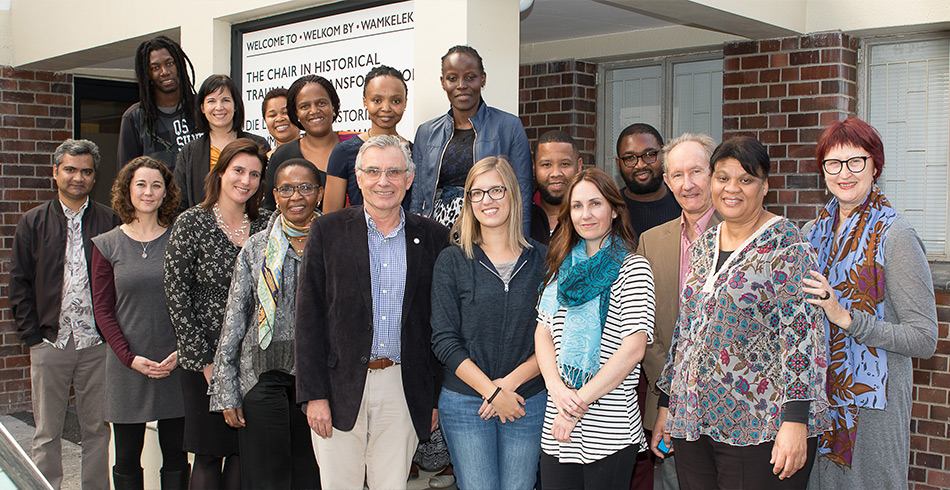Welcome to the Office of the Chair for Historical Trauma and Transformation and the SARChI Chair in Violent Histories and Transgenerational Trauma
Page Content

Prof Pumla Gobodo-Madikizela, Research Chair in
Historical Trauma and Transformation and the team of researchers,
postdoctoral fellows and postgraduate students, with the Stellenbosch
University Rector, Prof Wim de Villiers (in the centre).
This
Research Chair goes to the heart of the issues at the forefront of contemporary
debates about violence, historical trauma and memory and its expressions across
generations. Few topics stake a more compelling claim on humanities research
than the legacies of historical trauma. Taking an interdisciplinary approach,
the Chair brings a critical research perspective to bear on the traditional
approaches to historical trauma and its transgenerational repercussions, while
seeking to engage with the question of what transformation means in the
aftermath of violent and oppressive pasts. While focused on the South African
context, the inquiry speaks to global questions of the transmission of
traumatic memory in the aftermath of historical trauma, dealing with the past,
and the possibility of breaking intergenerational cycles of historical trauma.
This is a strategic research initiative, poised not only to contribute
significantly to public debates about the complex interplay of the historical,
cultural and traumatic dimensions of memory, but also to create a vibrant
research hub in the global south on these issues of historical trauma, memory
and transformation.
Our
aim is to bring conceptual clarity to the concept of violence and its traumatic
consequences in the lives of victim and survivor groups and their descendants.
As an interdisciplinary project, we will take an intersectional approach and
engage with the concept’s physical and structural aspects, as well as the more
insidious and symbolic forms of its expression that manifest in dynamic ways.
Secondly, we aim to interrogate the question of “healing” in the aftermath of
violent histories through critical inquiry and reflection on the strategies
that have been employed to “heal” violent pasts. An important objective of the
project is to set an agenda for exploring new intellectual frontiers and new
ways of understanding transgenerational repercussions of violence and the
continuities of historical trauma.

